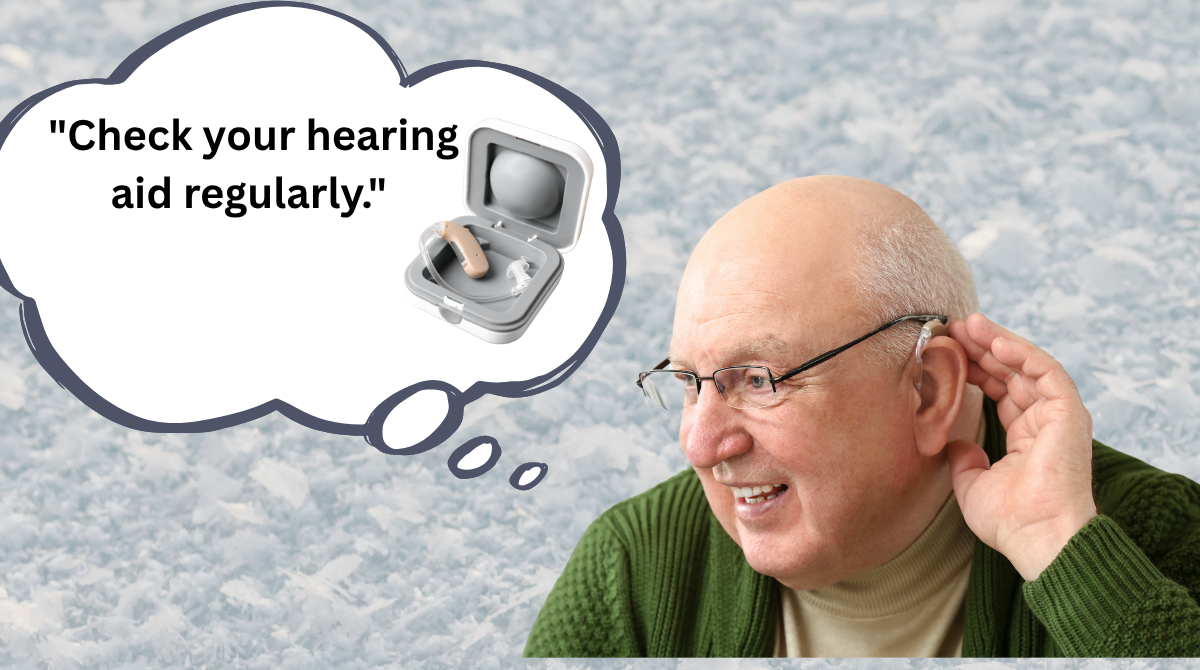
“I Find Conversations Difficult Whenever I Don’t Wear My Spectacles” – Is That Strange? Not Really.
Whenever I’m not wearing my spectacles, I have trouble having conversations” – Is That Odd? Not at all. This statement, “I find conversations difficult whenever I don’t wear my spectacles,” may initially seem strange or even humorous. Surprisingly, though, I’ve heard this mentioned numerous times, and Mr. Joshi is only one of many people who have done so. Let’s discuss the causes of this. It’s not as weird as it looks.
Meet Mr. Joshi
Mr. Joshi has been using hearing aids for the last 4–5 years, ever since his hearing loss was first identified. Like many others, he got his devices fitted but then never followed up. No regular hearing tests. No re-adjustments. No Pure Tone Audiogram to check how his hearing levels had changed over time.
And as expected, his hearing loss slowly progressed.
But here’s what happened next—something that’s quite common and often goes unnoticed.
When Hearing Isn’t Enough, We Start Watching
Since his hearing aids were no longer tuned to match his current hearing level, Mr. Joshi began depending more on what he could see rather than just what he could hear.
This shift happens naturally and unconsciously. When our ears can’t fully help us, our eyes step in. We begin to rely on:
• Lip movements
• Facial expressions
• Gestures
• Body language
Mr. Joshi was doing just that. But he didn’t realize how much he had come to depend on these visual cues—until he lost his spectacles.
Suddenly, Conversations Got Difficult
Without his glasses, Mr. Joshi couldn’t see people’s faces clearly. And since his hearing aids weren’t strong enough for his current hearing needs, he was stuck. Just hearing wasn’t enough anymore. His ability to follow conversations dropped noticeably.
This Isn’t Just About Mr. Joshi
Many people with hearing loss—diagnosed or undiagnosed—experience the same thing.
You might hear them say things like:
• “I can hear people talking, but I don’t understand what they’re saying.”
• “It’s harder to follow conversations in dim light.”
• “I can’t understand people when they speak from behind.”
Sound familiar?
That’s because without proper hearing, we compensate with visual information. When that’s also limited—like in poor lighting or when we can’t see the speaker—our brain struggles to fill in the gaps.
We All Use Visual Clues—But Some Rely on Them
Everyone uses both auditory (hearing) and visual (watching) cues during conversation. That’s natural.
But here’s the key difference:
• People with normal hearing use visual cues as a bonus.
• People with hearing loss often depend on them—without even realizing it.
If you’re already using hearing aids but still struggling, it could be time for a hearing aid reprogramming or service to match your current hearing needs.
So, What’s the Takeaway?
Whether you use hearing aids or not, if you’ve noticed any struggle in conversations—especially when you can’t clearly see the speaker—it’s time to:
• Get your hearing checked regularly.
• Update or reprogram your hearing aids
if your hearing levels have changed.
Untreated or unsupported hearing loss often leads to unnecessary communication challenges, which can easily be managed with timely help from an audiologist.
Conclusion
If you’ve ever found yourself saying, “I hear but I can’t understand,” or if you feel lost in conversations when the room is dim or your glasses are off—it might be more than a vision problem. Consider exploring digital hearing aids that enhance clarity and provide better support during real-world conversations.
It’s worth checking your
